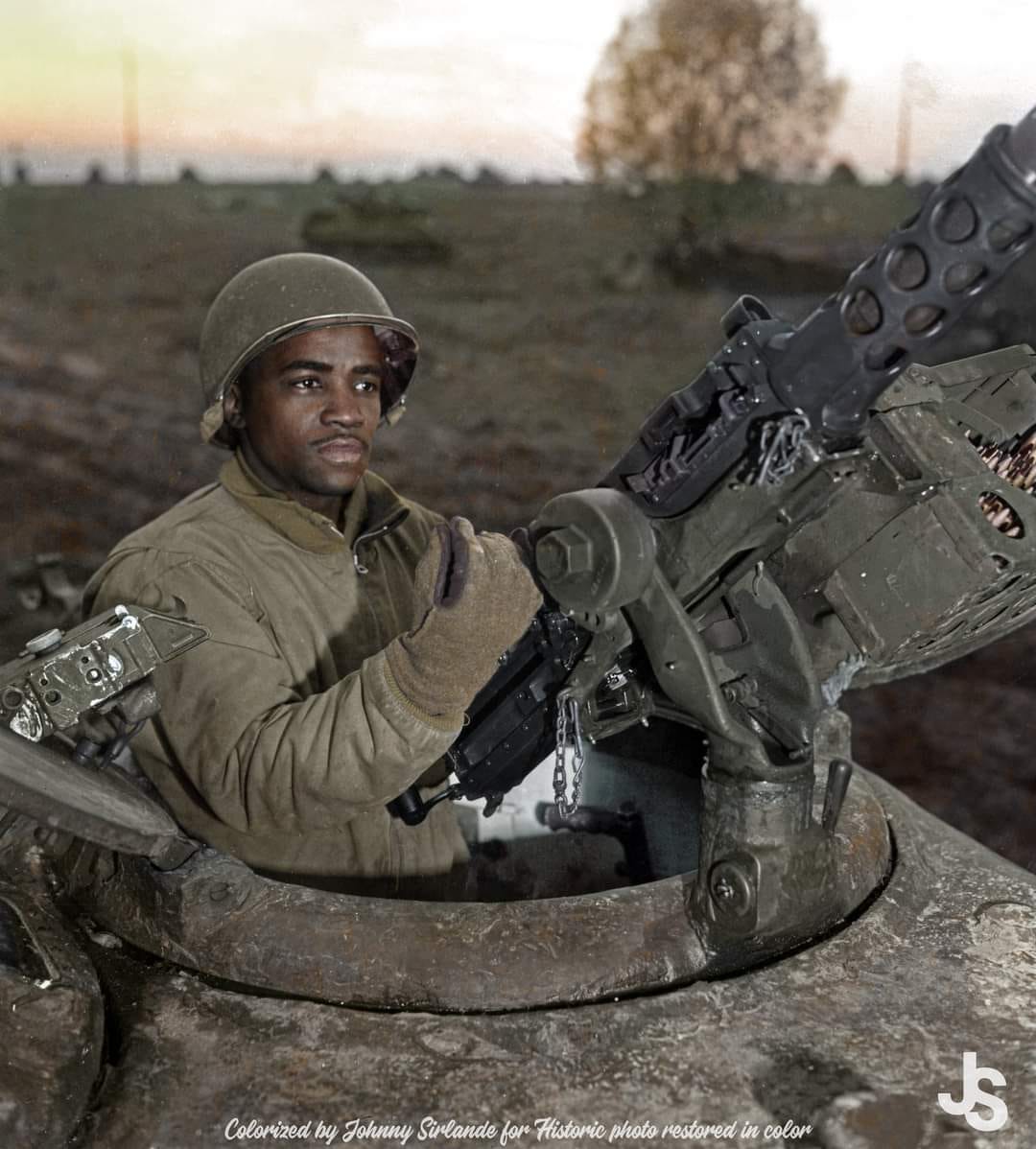Remembering the Black Panthers of WWII
Arriving in France on October 10, 1944, the 761st Tank Battalion named the Black Panthers helped tilt WWII in the Allies' favor

Due to the racism of the Jim Crow South, the all-Black 761st Tank Battalion dubbed the “Black Panthers” was created at Camp Claiborne, Louisiana on April 1, 1942. First arriving in France after coming ashore at Omaha Beach on Oct. 10, 1944, the men of the 761st Tank Battalion proved their worth when they entered combat at Morville-les-Vic in what was described as an "inferno" of battle on Nov. 7, the first of a series of hard-fought combat excursions.
Despite his own prejudices, General Goerge S. Patton gave the Black Panthers a pep talk prior to their first battle during a speech saying, “Men, you're the first Negro tankers to ever fight in the American Army. I would never have asked for you if you weren't good. I have nothing but the best in my Army. I don't care what color you are as long as you go up there and kill those Kraut sonsofbitches. Everyone has their eyes on you and is expecting great things from you. Most of all your race is looking forward to your success. Don't let them down and damn you, don't let me down!”
Regardless of Gen. Patton’s doubts and those of his fellow officers, the 761st would prove to be a formidable fighting force once it entered the German-held town of Morville-les-Vic to support the 26th Infantry Division. Their commander, Lt. Col. Paul L. Bates (a white man) was wounded the night before their initial battle and was not present - nor were any of his white senior officers.
However, Lt. Col. Bates was made famous after declining to prosecute Jack R. Robinson for refusing to sit at the back of a segregated military bus at Fort Hood, Texas in July 1944. The move cost Robinson his chance to see battle with his battalion. Lt. Col. Bates’ superiors then transferred Robinson to another unit where he was court-martialed and later acquitted. His acquittal came too late for him to join the Black Panthers on the battlefield.
Robinson would later become one of the most famous baseball players in history.
The 761st Tank Battalion fought in some of the most important battles that would tilt the war in the Allies’ favor. While not often discussed, the Black Panthers would later receive many awards for their heroics. The men were awarded a Medal of Honor, 11 Silver Stars, and about 300 Purple Hearts despite facing racism as the first black armored unit in combat and the second in U.S. military history However, by the end of the war, Black soldiers came home to a country that did not respect them nor treat them as equals.
Even before their deployment, the 761st received two years' worth of training while white tank units received only three months. This was because the Army couldn’t decide what to do with Black forces according to Sgt. Wayne D. Robinson, the historian for the 761st Tank Battalion Association and former armor crewman for the Massachusetts National Guard.
“Not only is the 761st the first of its time in terms of experience," Sgt. Robinson said. "When you compare the record of the 761st to other separate tank battalions, they're better … when you look at certain objective criteria like the number of enemy killed or captured, materiel captured, that kind of thing."
On May 5, 1945, the 761st Tank Battalion linked up with Russian Forces in Steyr, Austria. Throughout the war, the unit had lost nearly 50 percent of its starting forces and 71 tanks. The men were credited with inflicting 130,000 casualties after 183 days straight of fighting in the war.
I am a freelance writer, journalist, and publisher of The Antagonist Magazine and a regular contributor at Latino Rebels and Unicorn Riot. You can find me on Twitter, Facebook, Instagram, Mastodon, and Threads. If you’d like to read more of my work, support me directly by becoming a paid subscriber.



